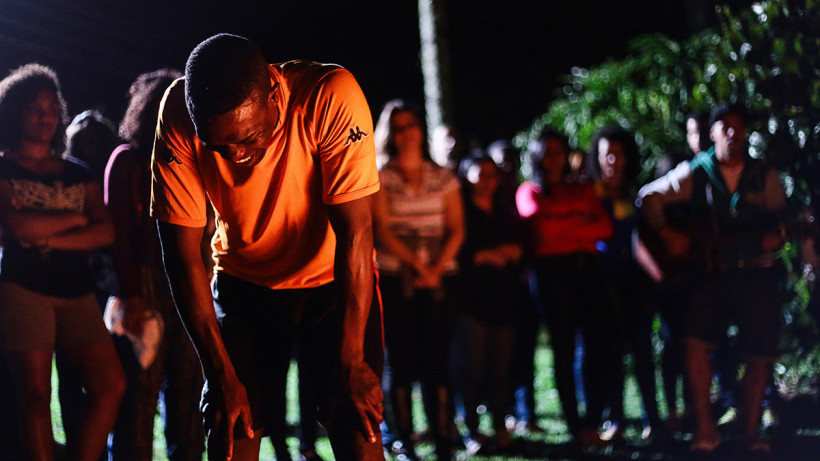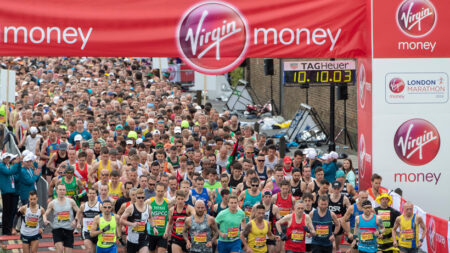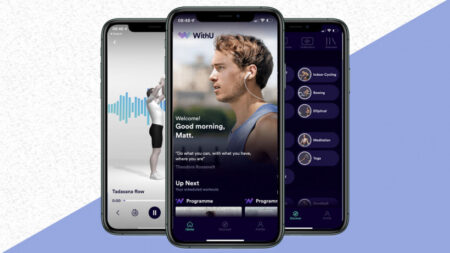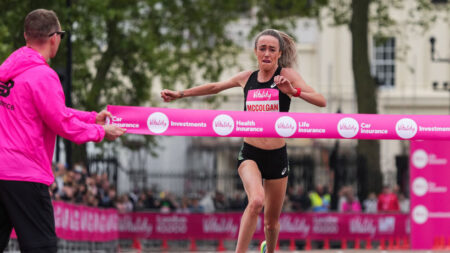Expert advice on the cardiovascular benefits and risks associated with training
We all think about our hearts during exercise, especially as we get older and if we suffer the odd set of palpitations. The tabloids don’t help, with doom-mongering clickbait headlines such as ‘When could YOU suffer a heart attack?’ not helping to make our lives, and approach to working out, any less stress-free.
So what are the risks of heart attacks during sport, and should we be worried? And if we are concerned, what can we do about it?
We spoke to Professor Sanjay Sharma, a professor of cardiology at St George’s Hospital, expert in sports cardiology, medical director of the London Marathon and cardiologist for the English Institute of Sport, British Rugby League and the British Lawn Tennis Association, to find out more about the muscle that powers us through our active pursuits.
He knows the heart like few others. And the first thing he stresses is not to be
In short, the fitter you are, the longer you live.
So that’s the good news. Now let’s find out more about how the heart operates under the pressures of cardio.
How much exercise a week is the ‘ideal amount’
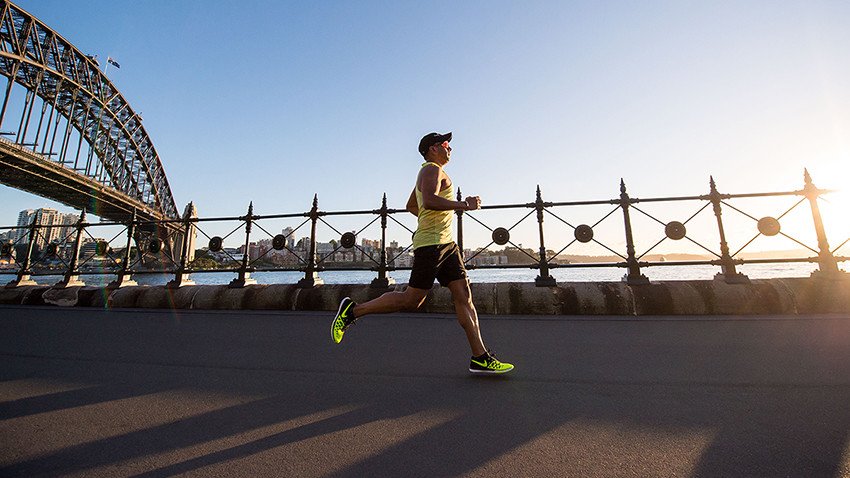
“Following all the trials and studies that have been done, we suggest that people should be doing 30 minutes of moderate, sustained physical activity five times a week,” says Professor Sharma. “This means brisk walking, mild jogging or cycling or swimming to the point they can just about hold a conversation – at least 80 percent of their maximum heart rate, which is 220 minus your age.
But the question is, is that enough? “The data set shows that people benefit more if they do 3-4 times that amount. So instead of doing 150 minutes of exercise in a week, they could do between 450 and 600 minutes of exercise a week. That’s what you need to get the best results of preventing a heart attack, stroke, diabetes, cancer of the breast and cancer of the colon.
“You could argue that if you did more vigorous exercise, such as running at a pace of 8- or 9-minute miles, you can do it in half the time. Not everyone is able to do vigorous exercise, though, which is why we put a lot of emphasis on moderate intensity.”
What are the risks of a heart attack while doing intense exercise?
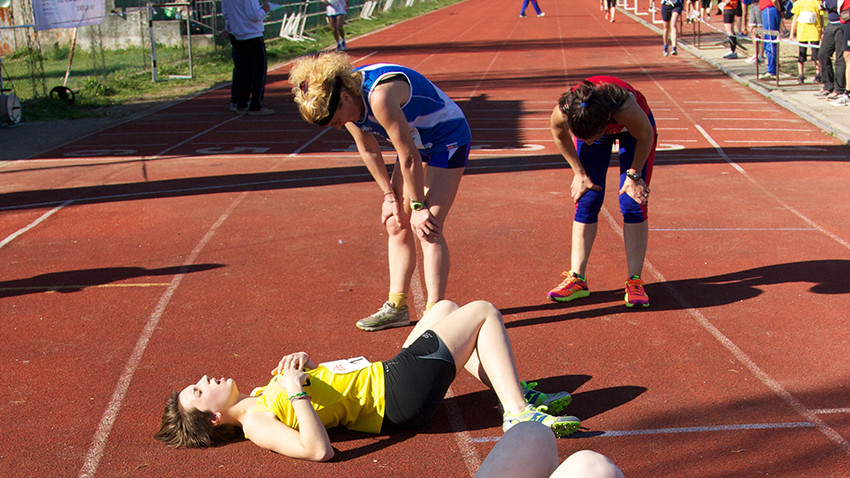
“Most people that suffer cardiac deaths do so because they have an underlying cardiac problem,” says Professor Sharma. “In younger people, these problems are either hereditary or congenital and they can affect the electrical tissue of the heart, the muscle of the heart or even the blood supply of the heart.
“With people aged over 35, the most common cause of death is a heart attack caused by a blocked artery. Exercise increases the amount of adrenaline in the heart, and it makes the heart work very hard. It can trigger heart attacks, or cardiac arrest, in people who are vulnerable because of these underlying blocked-artery conditions.”
Causes of furring up of arteries include smoking, high cholesterol caused by an unhealthy diet of high amounts of trans fats, saturated fats, salt and sugar, a lack of exercise and high stress levels.
“In fact, you’re six times more likely to have a heart attack in middle-age during exercise than you are at any other time,” adds Professor Sharma. “Such deaths are uncommon, though, affecting around 1 in 50,000 people, and the risk is 50 times lower in people who already exercise up to five times per week.”
Should you get your heart tested for abnormalities?
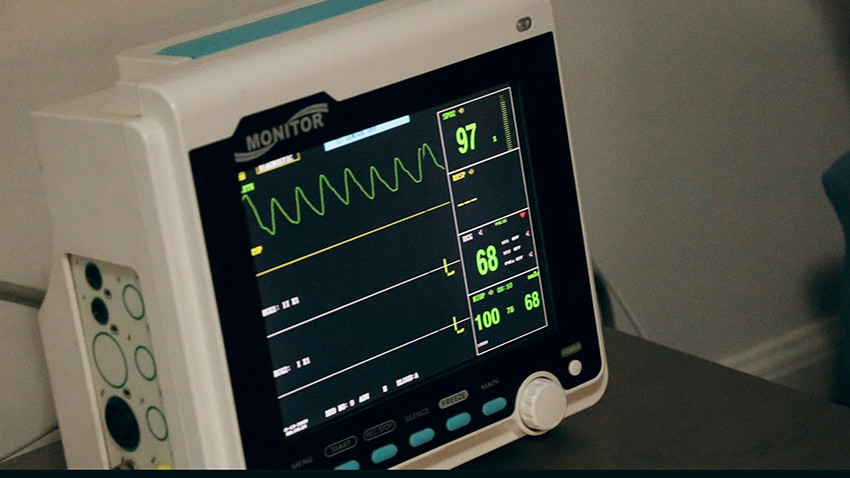
“Certainly for people under 35 there is good reason for doing it,” says Professor Sharma. “Around 80% of young people who have cardiac arrests have no warning symptoms, and sudden death is often the first presentation. The reason why I’m pushing for young people being tested is that most of the conditions that cause sudden death in this age group can be picked up with a simple test, such as an ECG. We’ve shown that 1 in 300 people have a cardiac condition that could potentially kill them. These conditions can be picked up on an ECG.”
CRY (Cardiac Risk in the Young) aims to prevent sudden cardiac deaths in the young, and offers subsidized ECG and echocardiogram screenings to people aged between 14 and 35. It has now screened more than 200,000 people, and if you are shown to have a cardiac condition it can be monitored and treated.
“Things are slightly different with the older population because the most common cause of death is a blocked artery, which will not be picked up with an ECG,” says Professor Sharma. “That needs more elaborate testing and is slightly more difficult. There is a screening that’s dependent on a self-filled questionnaire regarding potential symptoms and risk factors.
“So if you have symptoms or risk factors then we suggest you are seen and have detailed tests. If you have no symptoms or risk factors, and you take part in exercise, then there is little to show that screening actually prevents sudden death in this range of people.”
What is the impact of caffeine on the heart during exercise?

We’ve all felt our heart flutter slightly after having one too many XL americanos in a day. But these days, it’s common for gels and energy drinks to contain caffeine, and often nutritionists even advise drinking a coffee an hour or two before a big race. But can this do more harm than good?
“Tea and coffee certainly increases your heart rate and blood pressure slightly, but I would be very surprised if it does so sufficiently to cause cardiac arrhythmias,” says Professor Sharma. “When we look at the electrical patterns on an ECG after someone drinks a triple espresso, then we don’t see the heart electricity change at all. If people are going to harm themselves with caffeine there’s a chance they might put their heart into funny rhythms – not death rhythms, but something called supraventricular tachycardia, which can be brought on by drinking excess energy drinks.
“We’ve seen this among rugby players who drink six or seven cans of energy drink before they go on the pitch, and a couple of them have gone into this rhythm, But whether caffeine supplements can cause a death, there is no good data to say that they do. But we cannot prove that they haven’t contributed to any cardiac arrests.”
How does alcohol impact the heart during exercise?

“Alcohol is a cardiac poison,” says Professor Sharma. “People talk about the odd glass of red wine being good for you, and that may be true, but alcohol has a very toxic effect on the heart muscles. If you have several drinks in an evening you might find your heart beating hard in the middle of the night – that’s the effect of the alcohol, making your heart work hard, making it add in extra beats.
“So if you are drinking large amounts of alcohol and exercising the next day that could be detrimental. We normally advise people not to go on a hard run after a heavy night’s drinking. People who abuse alcohol certainly damage their heart muscles and it becomes very weak, so there’s no doubt that excess alcohol contributes to cardiac damage.”
Do drugs have an affect on the heart during exercise?
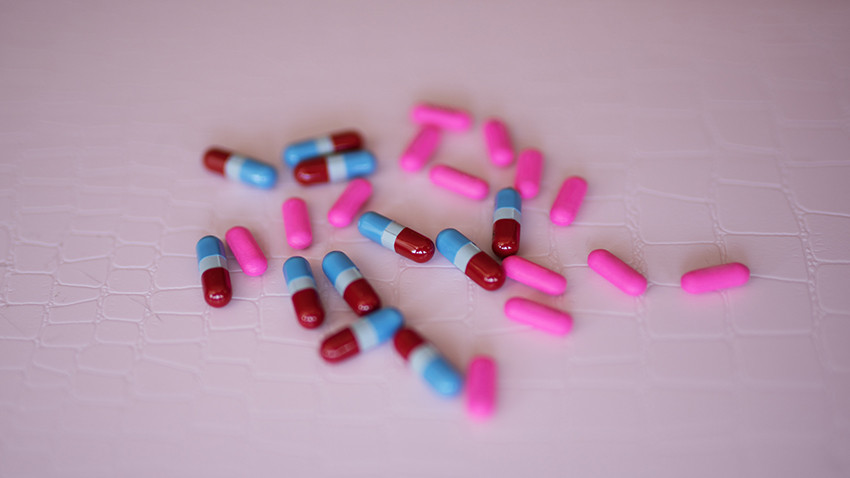
“We have seen deaths with performance-enhancing agents – anabolic steroids, and other agents that contain amphetamine-based substances. Sadly, there was one at the London Marathon in 2012 – Claire Squires inadvertently bought something off the internet, not realizing what was in it, and that caused her cardiac arrest during the race.
“I always say if you’re taking something and it works, it’s got to be bad for you. The issue of agents in drinks is a very big deal at the moment. A large proportion of young people are dropping dead, and when we do postmortems we don’t find anything. The toxicology screens are negative, but they don’t look for energy drinks or caffeine. The amount of the likes of taurine, ginkgo or biloba consumed in big doses needs to be looked into.”
What is different about an athlete such as Eliud Kipchoge’s heart to the average runner?
“Kipchoge is clearly genetically superior to many people,” says Professor Sharma. “To run marathons at that pace, you need a combination of systems working at their very best – an impressive heart, impressive lungs, blood supply and circulation, and an amazing skeletal system that can take up the oxygen and turn it into energy. There’s a plethora of genes involved in making someone a super-athlete.
“We do know that fitness is genetic. You can improve your fitness by 20-30%, but there is that saying that if you want to be a good athlete you need to choose your parents very carefully. That holds true. I’m certain that Kipchoge comes from a geographical area where there’s a gene pool that allows you to do this, and that’s why that area keeps producing athlete after athlete that are shattering world records. Kipchoge’s heart is not massive, Mo Farah has a small heart – it’s not the engine, it’s what’s going on in the periphery, such as the speed in which they can take up oxygen and nutrients and convert it into energy.”


